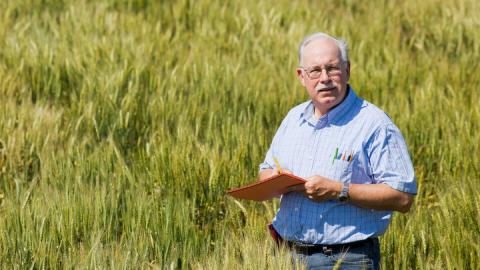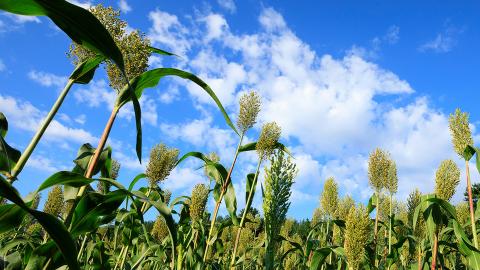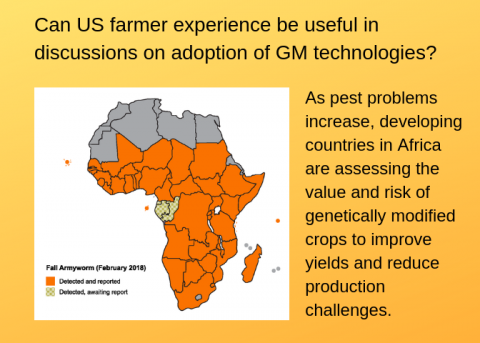UNL Dry Bean Breeding Program Announces Public Release of Two New Dry Edible Bean Varieties
April 19, 2021
Two new dry edible bean varieties will be available to producers in the near future — a great northern bean suitable for direct harvest and the other, a slow-darkening pinto bean variety with longer shelf life.
Baenziger Supports Growers through Small-Grains Program
December 17, 2020
Over the course of his 34-year career at the University of Nebraska–Lincoln, P. Stephen Baenziger has developed 61 new cultivars of wheat, barley and triticale, a hybrid of wheat and rye.
Nebraska Team Merges Machine Learning, Plant Genetics to Maximize Sorghum Potential
August 22, 2019
Sorghum is emerging as a star player in the biofuels industry. With its water use efficiency, resistance to heat, and low cost of seed, it could outpace corn, with a little boost from improved genetics. To aid that, a UNL team was recently awarded a $2.7 million grant to work on a rapid, efficient method for characterizing its gene functions.
Advocacy of Genetically Modified Crops is Needed to Increase Acceptance Worldwide
December 6, 2018
As fall armyworm extends its range in Africa, 13 countries are researching the value and risk of genetically modified crops to combat it and other pests. Only South Africa has approved Bt maize for farmer use. Information on US farmer experiences and practices with GM crops may be helpful to farmers in developing countries.
3 Online Mini-Courses on Plant Breeding and Genetics
February 8, 2018
This spring the university's Department of Agronomy and Horticulture is offering three advanced online mini-courses on plant breeding and genetics as part of its professional certificate program.



